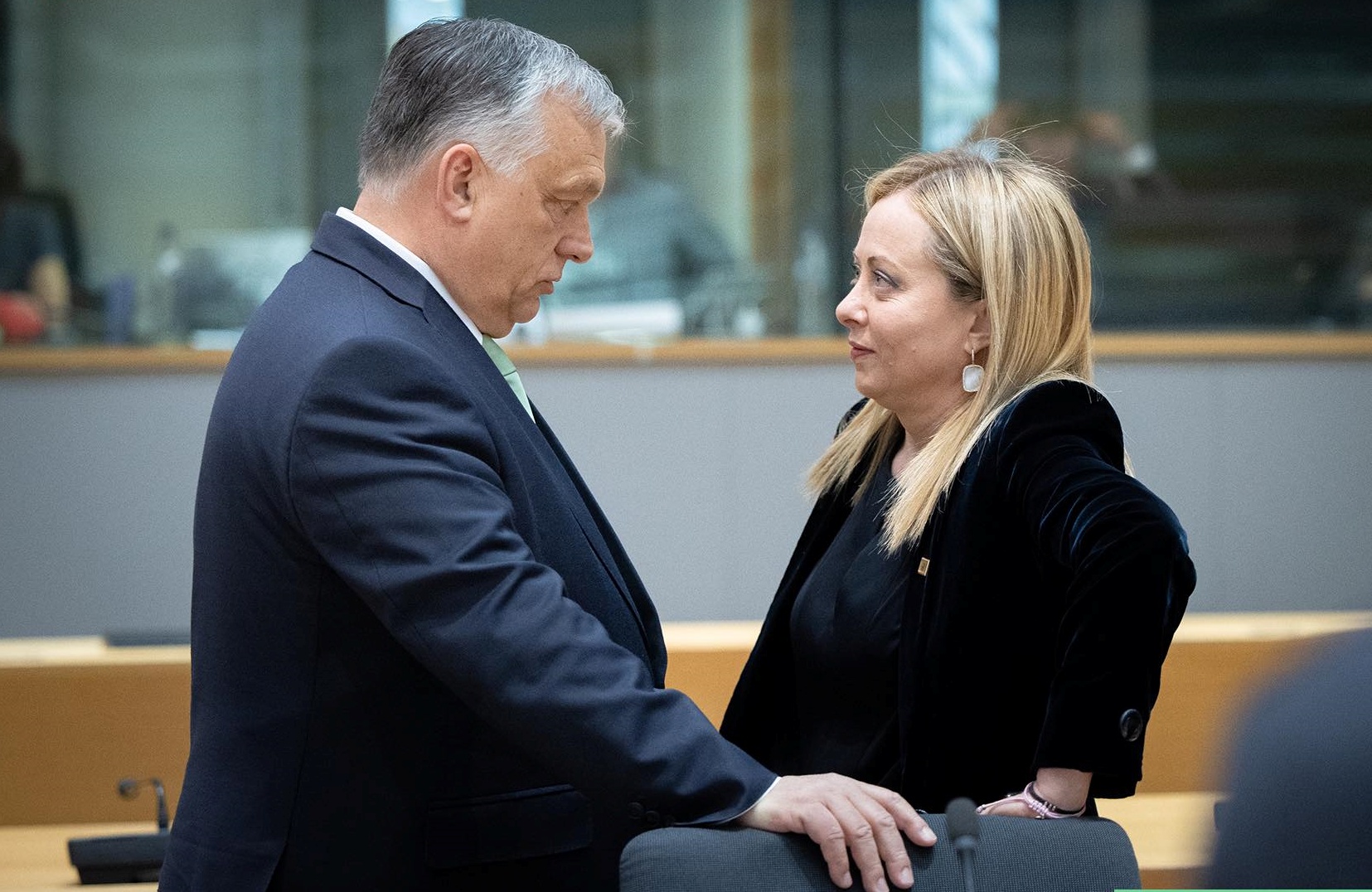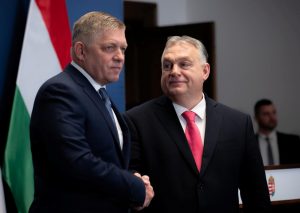"This shows that the integration of Europe also disciplines right-wing populists".Continue reading

The establishment of the new European Parliament political family, Patriots for Europe (PfE), has to be seen first and foremost as a clear message to all European parties calling themselves, national, conservative, Christian, right-wing or sovereigntist. As far as values and decisions are concerned, this is the end of ambiguity, an epilogue to faux-conservative relativism and euro-pragmatism.
After leaving the European People’s Party (EPP) in March 2021, Viktor Orbán’s Fidesz had started a long journey of exploring new alliances, trying to find a political home within the European conservative community. Due partly to the fact that, both on the left and the right, existing EP groups have contained ideologically seriously mismatched members, Fidesz’ three year journey had to end almost inevitably with the establishment of a fresh bloc that reflects the newly redefined national sovereigntist identity spreading across Europe’s political landscape. Though it will not pose an existential challenge to the two largest, left-wing groups in the EP, Manfred Weber’s neutered “euroconservatives” of the EPP, or the hard-right’s Progressive Alliance of Socialists and Democrats (S&D), they will certainly redefine the criteria of center-right sovereigntist policies aiming to offer a clear and uncompromising alternative to the European left’s dominance.
The first and perhaps harshest lesson that the establishment of the PfE will offer will undoubtedly be aimed towards the Giorgia Meloni led European Conservatives and Reformists. They, similarly to Manfred Weber, have made aiding Ukraine by military means the main criterion of cooperation among the European right. Based on this condition, the Hungarian government party Fidesz was not allowed to join the ECR, although both Meloni and Poland’s Mateusz Morawiecki deny that they would have personally blocked the Hungarians from joining their group. To add insult to injury though, they have made the fatal decision of accepting Romania’s openly Hungarophobic ultra-nationalists, AUR, instead, to which Máté Kocsis, leader of Fidesz’s parliamentary group reacted by saying,
there is no way Fidesz should sit in the same group as such a party in the European Parliament! No way!”
No longer being described by the words “far-right” or “post-fascist” in the mainstream left-wing media as before, Meloni has become the acceptable face of conservativism among the European left. That should first and foremost frighten her own Italian voters who have called for tough border protection, end to gender politics and a return to traditional European values. Instead, they have been given a type of watered down “stakeholder” conservativism, that embraces cooperation with anyone willing, thus in reality representing no one. Bizarre attacks against Viktor Orbán’s foreign policy, namely his contacts with the Organization of Turkic States by ECR co-chariman Nicola Procaccini, will further play into the European left’s hands.
“I am concerned by Viktor #Orban‘s participation in the summit of the Organisation of Turkic States. His actions undermine the recognition of the Republic of Cyprus and disrespect the national sovereignty of our partners. #Patriotism means defending European nations, not… pic.twitter.com/Yt3XmufPNA
— ECR Group (@ecrgroup) July 7, 2024
This fact should also cause some concern among their Polish partners in the ECR, the Law and Justice (PiS), who have unwittingly found themselves to be junior partners to Meloni’s centrist ambitions. As a result,
Morawiecki’s conservatives, who have used their threat of joining the PfE as a bargaining chip in their jostling for the top post in the ECR, could in future well find themselves sitting at the same table with their arch-rivals, Donald Tusk’s Civic Platform, who are members of the EPP.
The fact that Meloni’s goal of a center-right broad coalition with the EPP did not materialize was not due to a lack of willingness from the FdI’s part, but as a result of Urusla von der Leyen’s unsurprising decision to turn to the greens, socialists and liberals for formal cooperation instead of the ECR.
Slovakia’s SMER was also rumored to be considering a membership in the PfE, but as it sometimes happens with Robert Fico’s social democrats, at the crucial moment they have decided to continue to wait patiently in the S&D’s waiting room for a decision concerning their suspended membership, instead of putting their own political program into practice that they have campaigned with: anti-progressivism, sovereigntist nationalism, anti-migration and family values. There is a palpable and growing anger among their voters in Slovakia at their decision to stick with the European socialists, despite that in practice meaning a volte face to their electoral promises.

Slovakia’s Robert Fico (L) with his Hungarian counterpart. Photo: Facebook/Orbán Viktor
And finally there is the Democratic Alliance of Hungarians in Romania (RMDSZ). Despite representing the Hungarian minority in Romania that existentially depends on the economic and political support of the government parties in Budapest, the RMDSZ is sticking with their membership in Manfred Weber’s group. Regardless of the EPP representing everything that is in contradiction to Hungarian national-policy and the interests of European indigenous minorities, the Romanian Hungarians are reluctant to step out of their comfort zone, and join the PfE. We have asked RMDSZ for comment about their decision, we have not received any answer at the time of the publication of our article.
Viktor Orbán’s role in establishing the new conservative alliance in the EP is, without concrete details, rather anecdotal, but few doubt that the new formation has been established largely out of his initiative. With this he managed to dispel the myth of the Hungarian government’s alleged “isolation” perpetuated by the left’s media, but also take the crown off Giorgia Meloni’s head as the European face of national conservativism, and give it to France’s Jordan Bardella. He has just become the leader of the largest Christian conservative group in the EP (currently 84 members against the ECR’s 78), he speaks for Europe’s conservatives now, not Meloni.
The success of the PfE though does depend, to a large extent, from developing a strong common platform with the parties of the ECR. Both Meloni and Morawiecki have proved to have the courage in the past to stand up for conservative policies, such as migration control or anti-LGBTQ. Yet both of them are susceptible to being distracted by the left’s theatrical gestures of European solidarity, that have cost one of them an election, and made the other found herself out of depth. Orbán has learned not to trust the European left and expect nothing from them, his ‘peace mission’ through political divides, in Kyiv, Moscow, Beijing and Washington, is only one manifestation of this fact. Yet the one crucial lesson that Orbán is leaving behind for his potential conservative allies in Europe is this:
when it comes to national interest and sovereignty, ask not what is possible or what is allowed, ask what is necessary. The previous two ought to align with the latter, not vice versa.
Featured Image: Facebook Viktor Orbán